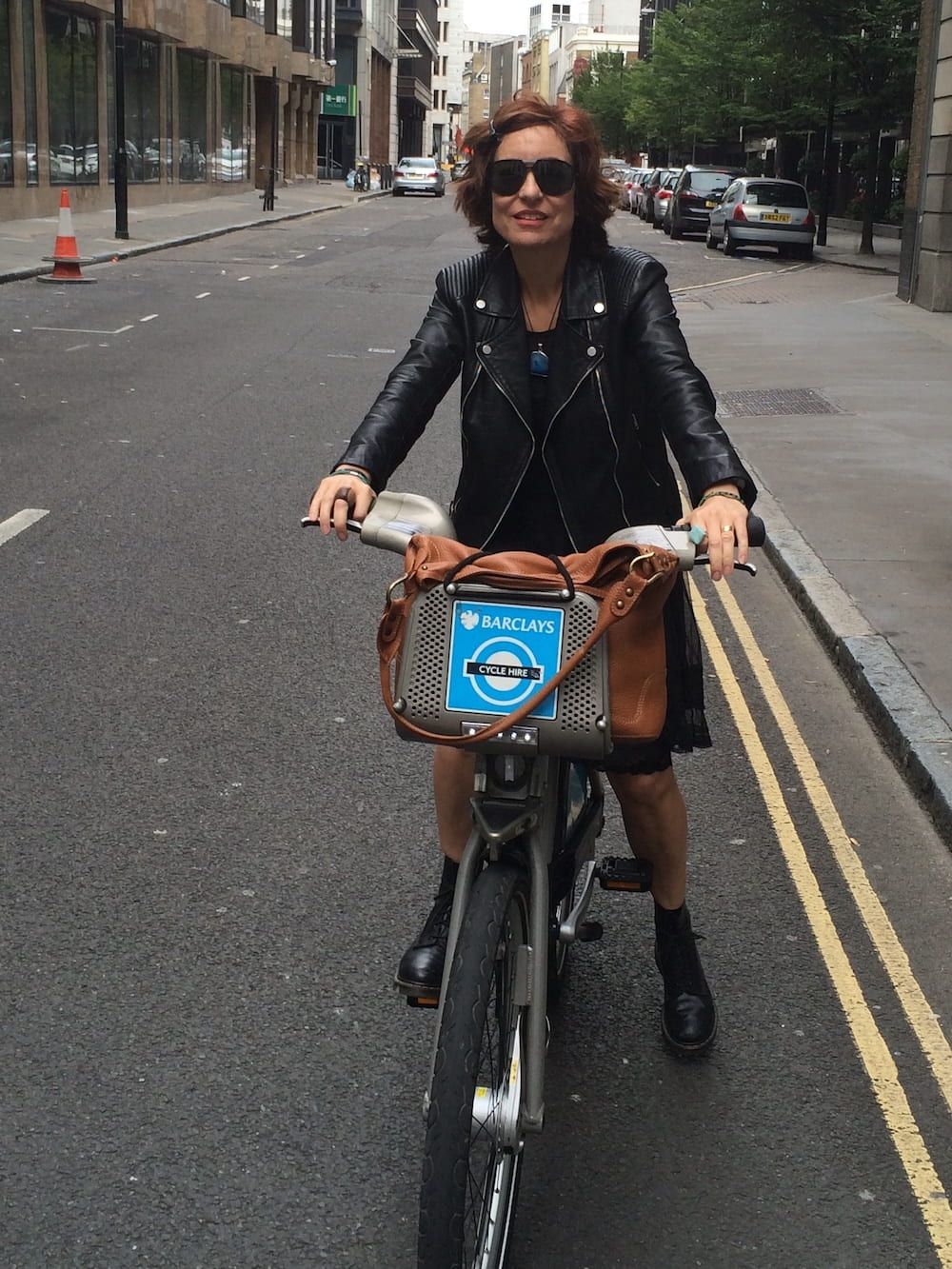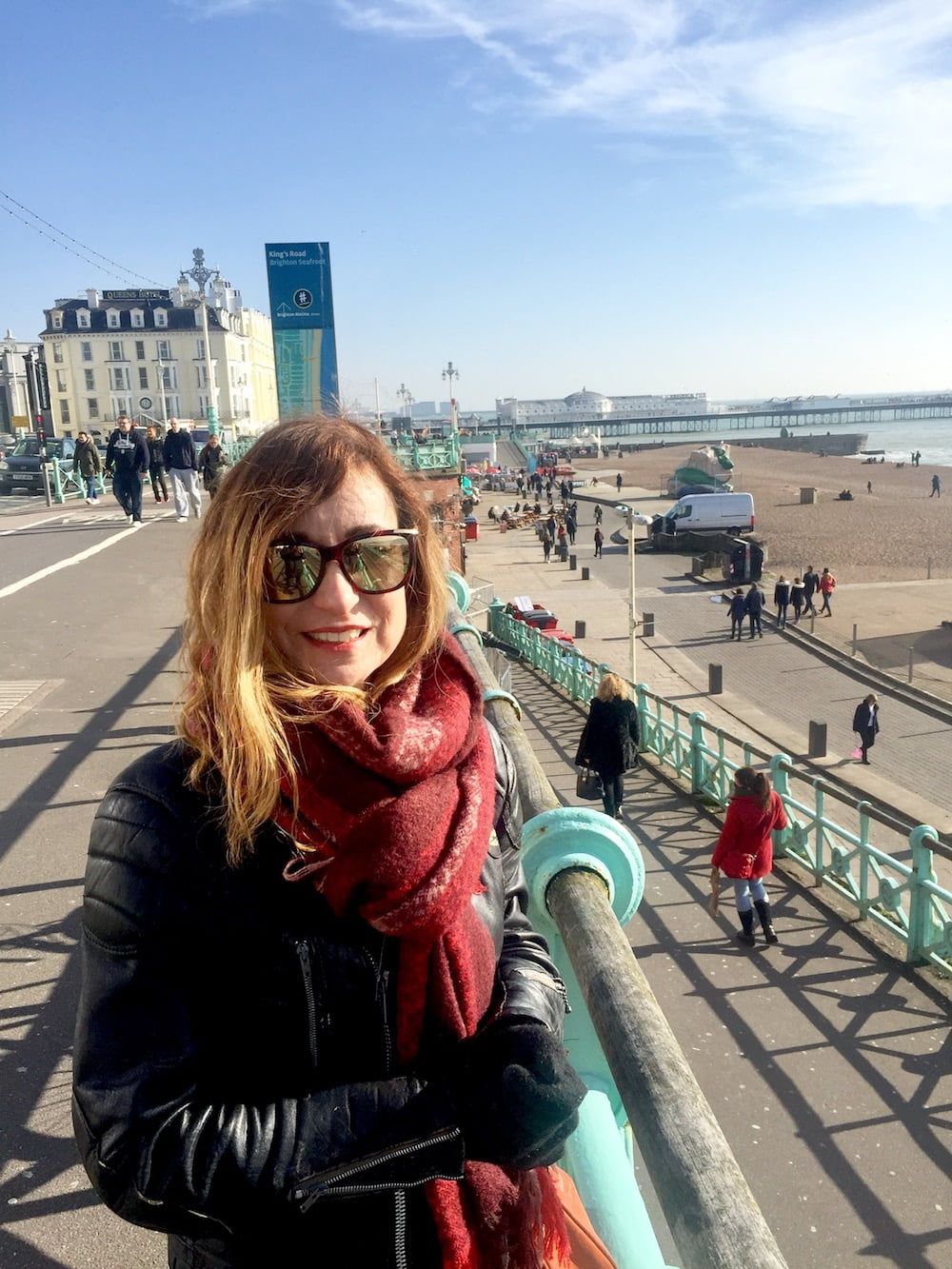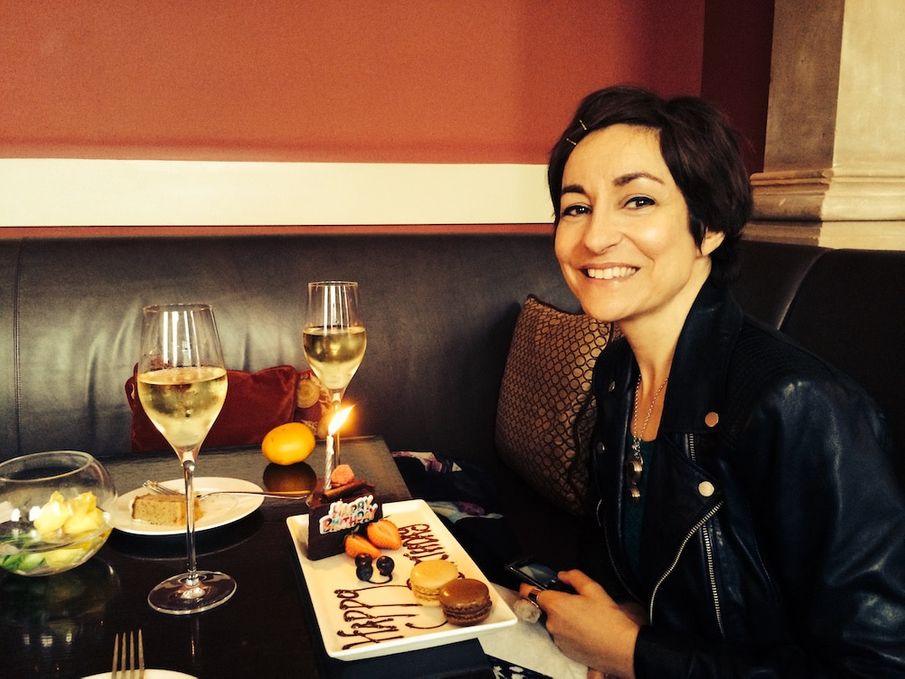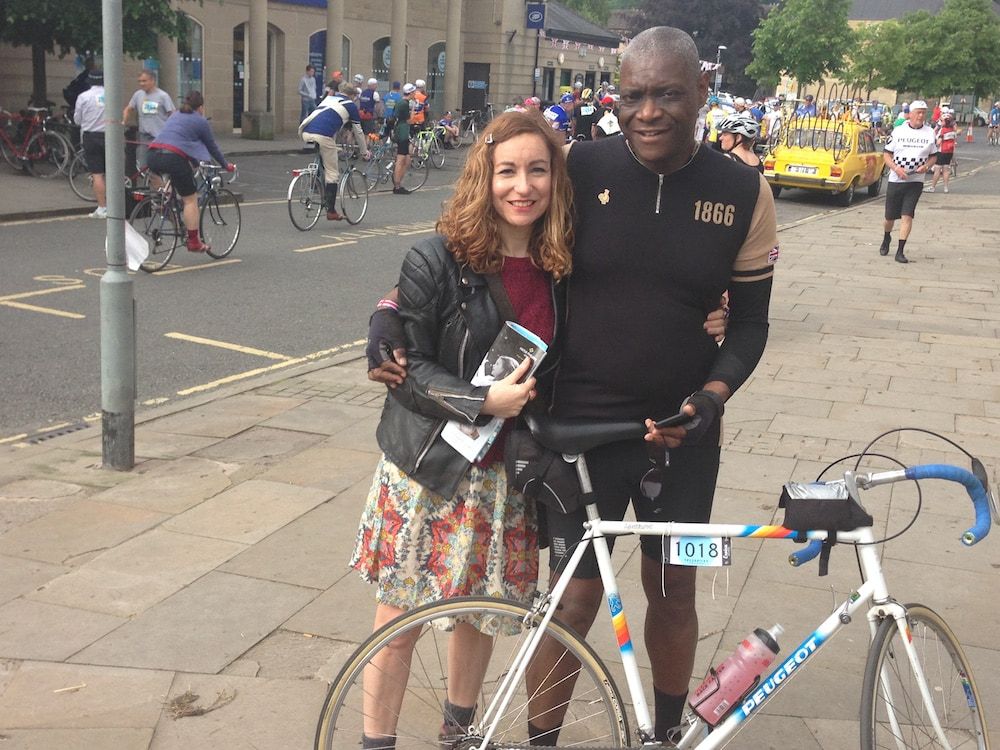After being diagnosed with breast cancer in 2013, Danielle Simpson had more than just her health and illness to contend with, as she had to leave behind the adventurous life and career she loved in Dubai for treatment at home in the UK. Life after cancer may have had anxiety and grief, but Danielle has learned to appreciate her ‘new normal’
It was April 2013, and I’d been living in the Middle East with my family for seven years, working as a feature and travel writer. If I wasn’t writing about the region, I was interviewing artists, designers, musicians or film-makers. But that day I was off to interview a plastic surgeon.
The surgeon, I’d been assured, was the best. A beautiful woman in her 30s, immaculately made up, and at least eight months pregnant, took me into her office and swiped through image after image on her iPad, of breasts she’d enhanced. If I was interested, I should speak to her receptionist about costs on the way out.
I left. A bitter taste in my mouth. I wasn’t there to conduct a magazine interview; I was there to talk about breast cancer.

Danielle Simpson
Four weeks earlier, Sunday 10 March 2013, I’d put in my diary: Mother’s Day. Nephew’s seventh birthday. Doctor’s appointment 1.30pm.
“Tell me very quickly. Then tell me very slowly.” I said.
“Breast cancer,” she said. Breast cancer.
The next four Sundays (being first day of the week in the Middle East) after each new set of scans and tests, I was back in my GP’s office for the results. Then, when I thought it could get no worse, the insurance company said they wouldn’t pay for my treatment, and the oncologist was away the day she was meant to give me my treatment plan.
“Which breast is it?” asked her replacement.
“If you don’t know, I’ll wait till my oncologist is back,” I said.
“You’re making me nervous,” she said.
“You’re making us nervous,” said my husband, Tony.
She glanced at a piece of paper on her desk.
“Double mastectomy,” she said and sent me on my tear-stained way to discuss my options with the plastic surgeon.
A second opinion in the UK seemed like a good idea.
“The Dubai treatment plan is 20 years out of date,” I was told.
A no-brainer. Within three weeks I returned to England to start my treatment, and my life overseas came abruptly to an end. Days filled with a career I’d loved, and caring for my family (for I had to leave them behind too – one daughter finishing AS levels, the other her SATs, my husband on a contract in Qatar, my son at university in the UK), desert-life, sun, adventure, were, overnight, replaced by hospital appointments and a new existence as the sickly daughter back in the parental home.
After a few challenging months, my family joined me. A year of treatment, followed by a year of recovery. Then three more to try to slot back the pieces of an interrupted life. Today, the pieces are in place, just not as well fitting as before.
I’m alive, and that’s what counts. But I don’t look the same, feel the same, or function the same. I lost my identity and the life that I knew. And moving on has proved a challenge.
At first, I couldn’t think about our time in the UAE. If anyone referred to our life then, fear, distress and sadness were triggered intensely. If I didn’t talk about it, or walked out of the room when they did, I could manage the present and not dwell on the past.
Danielle and her husband
But memories are wayward things, and you can’t walk out of every room. Photos would pop up on my screensaver. Me in Dubai with lovely, long before-cancer [BC] curly hair. Me with the Jessica Biel fringe I cut in, before diagnosis.
In case that lump was cancer. In case I had to have chemo. Me with the ugly buzz cut in the UK. The month-by-month charting of post-chemo it-doesn’t-do-what-it-used-to hair.
I could also have stopped looking in the mirror at the scars, the edited boobs, the tattooed black dots made by the hospital to accurately target the radiotherapy treatment. But that seemed a step too far.
I could eat differently, to try to resolve the new dodgy digestive system thanks to chemo. I could drink less, try to ignore the overactive bladder courtesy of Tamoxifen.
I could appreciate aspects of our new life. The countryside, seasons, London, living with my husband full-time again, not just weekends as we’d done in the Middle East. I was thankful for the pilates teacher who helped me regain strength. And the outstanding hospital psychologist who helped me make sense of life after cancer. I treasured the NHS and loved my friends. And every night I made myself reflect on three things I was grateful for that day, even if I had to scrape the barrel and dig very deep.
But “moving on” still proved elusive. For, despite all the tactics, anxiety struck. First a ripple. Then waves. Finally a tsunami of constant terror that the cancer would return. In the end it made sense (to me at least) to explore worst-case scenarios, and exist as if I still had it.
Exhausted, I knew I couldn’t carry on like this. There had to be a solution.
After a considerable amount of misery, I tried cognitive behavioural therapy; it helped a little. Found a new counsellor – she helped a lot. And upped the exercise – pilates twice a week, dance once a week, walking every day. It calmed my mind. I stopped investigating each ache and pain, and attempted to focus on things other than my health.

Danielle
But my brain, now free of one type of clutter, had space to explore another unresolved issue.
My lost identity.
When we moved to the Middle East, for the first time in my life, I landed a job that I loved, that I could do well. I evolved into someone I was proud of.
But, now, back in the UK, where I had no form as a writer, I felt like I’d been dumped in another person’s life with no way to get back to my own.
Giving up anxiety was all well and good, but now I was consumed with grief. Fed up with feeling so wretched, a sliver of the old me said: “Get out the house and just do anything.”
Initially, I went down the volunteer route. Then, on a roll, applied for a paid job, because not contributing financially was also adding to the feelings of worthlessness.
Not a writing job. Not a job that I loved. But a job nonetheless. And slowly, I regained some confidence.
A year later, I left that job, gave myself a deadline to complete the rewrites of my first novel, and this newer, bolder me (not the BC bold me, but someone closer) set up meetings with magazine editors. I started writing for Waitrose Weekend Newspaper.
And I confronted my memories, embarking on View From A Broad – a blog about my time in the Middle East.
Now, five years since diagnosis, my normal is a new normal. Having cancer and having to abandon my home, my work, my friends – my life BC – tested me to the limit. But the experience has also strengthened my resilience, given me a better understanding of what makes me tick, and taught me to be kinder to myself. I am not the same person I was before, but I am beginning to accept the new me.
To read Danielle’s blog, visit daniellesimpson.wordpress.com
Danielle did not only have cancer to contend with, she also lost her home, job, for a time her family, and in the extended treatment and recovery period, her identity. It is not surprising that fi nding acceptance and exploring her new normal has taken time; her commitment to healing is evident in her exploration of her anxiety, and the grief underpinning it. Cancer can be life-changing, provoking signifi cant losses, and opening up to those feelings can be very difficult, but Danielle teaches us that, in time, healing is possible.



Comments